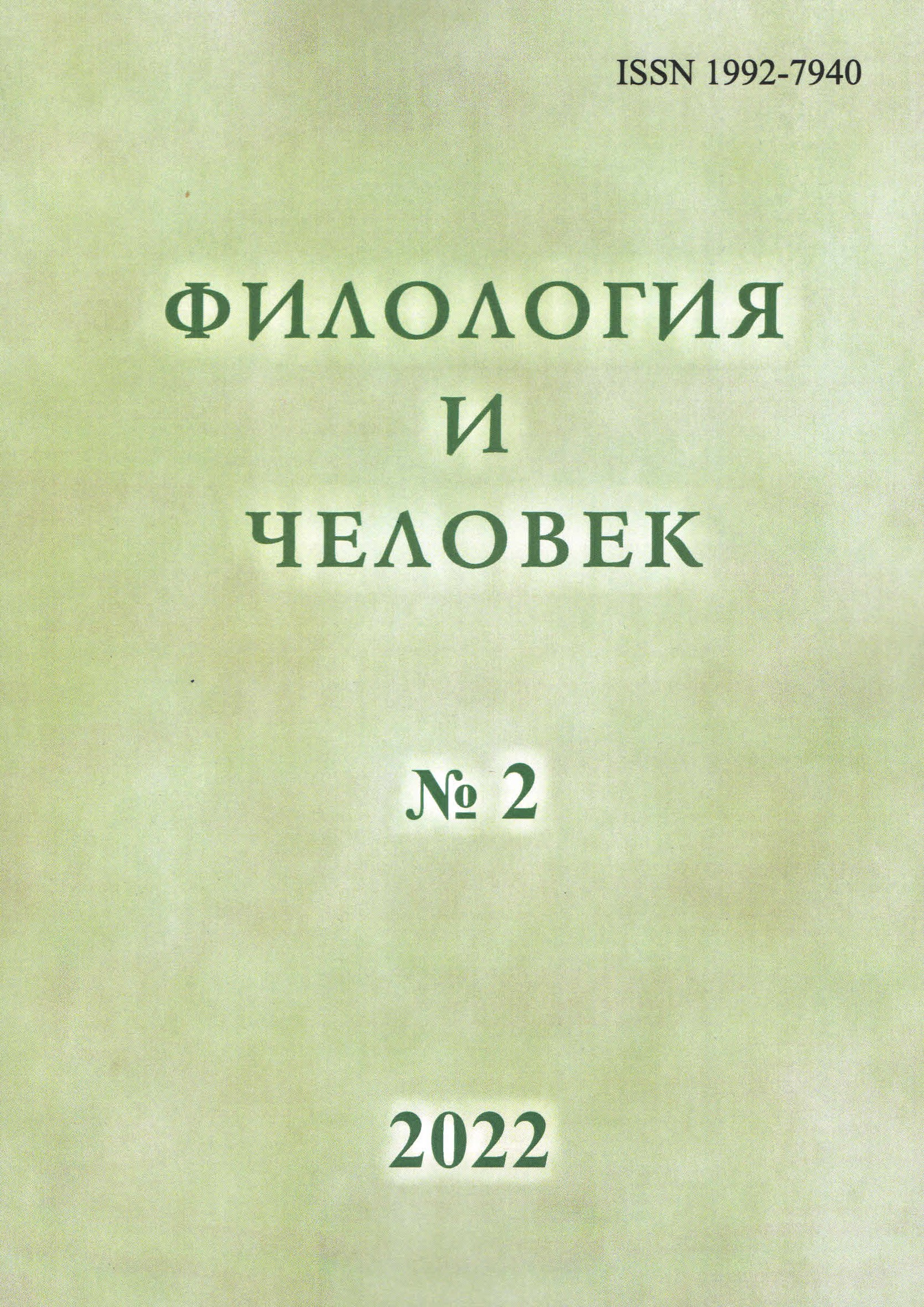Formation of the concept of "benefit" in Russian language.
Abstract
The article discusses the formation of the concept of "Benefit" from a historical point of view. Based on the material of the literary language, its stages are determined on the basis of historical changes in the nominational structure of this fragment of the Russian linguistic image of the world. The first, prehistoric period, is associated with the most common native Slavic designation of the concept of "benefit" by the lexeme greed and its various regional names (extraction, gain, profit), realizing the motivational sign "result (material) that the subject aspired to". The next stage is the collision and interaction of the pagan interpretation of benefit, primarily as prey, with the Christian understanding of benefit as something that gives relief (soul and body), liberation (from sins and hardships of everyday life). The third and fourth stages are associated with the interpretation of the concept expressed by the word benefit on Russian soil. The preservation of the connection between the concept of "benefit" with the concepts of "relief" and "help" is evidenced by the data of a number of dialects and Dahl's dictionary.
Downloads
Metrics
References
Арутюнова Н.Д. Типы языковых значений. Оценка. Событие. Факт. М., 1988.
Биржакова Е.Э., Войнова Л.А., Кутина Л.Л. Очерки по исторической лексикологии русского языка XVIII века. Языковые контакты и заимствования. Л., 1972.
Варбот Ж.Ж. Заметки по славянской этимологии (слав. *koristь, русск. скряга, русск. диал. намокнуть ‛приучиться’, русск. дроля, русск. –начить) // Этимология. М., 1972.
Гацалов М.М. Современный экономический словарь-справочник. Ухта, 2002.
Словари
Александрова З.Е. Словарь синонимов русского языка: Практический справочник: Около 11000 синонимических рядов. М., 2001.
Абрамов Н. Словарь русских синонимов и сходных по значению выражений: Около 5000 синонимических рядов. Более 20000 синонимов. М., 1999.
Даль – Даль В.И. Толковый словарь живого великорусского языка. М., 1994. Т. 1–4.
Евгеньева А. П. Словарь синонимов русского языка. Л., 1970-1971. Т. 1–2.
Ляшевская О.Н., Шаров. С.А. Новый частотный словарь русской лексики. М., 2009.
МАС – Словарь русского языка / Ред. А.П. Евгеньева. 2-е изд. М., 1981–1984. Т. 1–4.
САР – Словарь Академии Российской. СПб., 1789–1794. Ч. 1–6.
Словарь русского языка XVIII века / Гл. ред.: Ю.С. Сорокин. Л., 1984–1991. Вып. 1–6; СПб., 1992–2011.Вып. 7 –19.
СлРЯ XI–XIV – Словарь древнерусского языка (XI–XIV вв.) / Гл. ред. Р.И. Аванесов. М., 1988–1991. Т. 1–10.
СРНГ – Словарь русских народных говоров. М.; Л., 1965–2016. Вып. 1–49.
СлРЯ XI–XVII – Словарь русского языка XI–XVII вв. / Глав. ред. С.Г. Бархударов и др. М., 1975–2015. Вып. 1–30.
СС – Словарь старославянского языка. СПб., 2006. Т. 1–4.
Ушаков – Толковый словарь русского языка: в 4 т. / Под ред. Д.Н. Ушакова. М., 1935–1940.
Фасмер – Фасмер М. Этимологический словарь русского языка: в 4 т. / Пер. с нем. и доп. О.Н. Трубачева; под ред. и с предисловием Б.А. Ларина. М., 1964–1973.
Черных – Черных П.Я. Историко-этимологический словарь современного русского языка: в 2 т. М., 1994.
ЭССЯ – Этимологический словарь славянских языков. Праславянский лексический фонд. вып. 40: *ƍborъkъ – *pakъla. М., 2016.
Источник
Новая философская энциклопедия: [Электронный ресурс]. URL: https://gufo.me/dict/philosophy_encyclopedia/%D0%9F%D0%9E%D0%9B%D0%AC%D0%97%D0%90
Редакционная коллегия научного журнала «Филология и человек» придерживается принятых международным сообществом принципов публикационной этики, отраженных, в частности, в рекомендациях Комитета по этике научных публикаций (Committee on Publication Ethics (COPE), Кодекс этики научных публикаций), а также учитываeт ценный опыт авторитетных международных журналов и издательств.
Во избежание недобросовестной практики в публикационной деятельности (плагиат, изложение недостоверных сведений и др.), в целях обеспечения высокого качества научных публикаций, признания общественностью полученных автором научных результатов каждый член редакционной коллегии, автор, рецензент, издатель, а также учреждения, участвующие в издательском процессе, обязаны соблюдать этические стандарты, нормы и правила и принимать все разумные меры для предотвращения их нарушений. Соблюдение правил этики научных публикаций всеми участниками этого процесса способствует обеспечению прав авторов на интеллектуальную собственность, повышению качества издания и исключению возможности неправомерного использования авторских материалов в интересах отдельных лиц.





